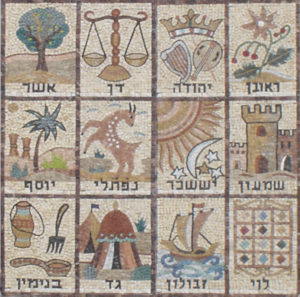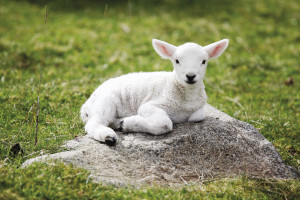פנחס
Parasha Pinchas
Bamidbar (Numbers)25:10-29:40
And YaHuWaH spoke to Mosheh, saying, “Pinchas, son of El’azar, son of Aharon the priest, has turned back My wrath from the children of Yisra’el, because he was ardent with My ardour in their midst, so that I did not consume the children of Yisra’el in My ardour.. – Bamidbar (Numbers) 25:10-11
This Torah portion is titled פנחס”Pinchas” (Phinehas). In our previous Torah Portion we learn that Bilam the false prophet had given advice to Balak Sovereign of Moab to trick the children of Yisrael through seduction. The women of Moab and Midian used their beauty to trick the people of YaHuWaH to worship the idol Ba’al Peor. When Zimri son of Salu a leader of the Shim’onites joined Ba’al Peor and took a woman of Midian openly before all those who were weeping at the Tent of Meeting, Pinchas (Phinehas) sprung into action killing the respected prince and also killing Kozbi the Midianite woman who was a princess. The odds were against Phinehas, and he essentially put his life on the line to bring about order in YaHuWaH’s camp. Though many of the people were against him, Yahuwah announced publically that he would establish his covenant of shalom with Pinchas.
Numbers 25:12“Therefore say, ‘See, I am giving him My covenant of Shalom.
A Torah Scroll is not considered Kosher (acceptable) if a letter is considered broken. However in the word shalom (peace) in Bamidbar (Numbers) 25:12, the letter waw is always broken and the scrolls are always considered Kosher but only for this one exception.
There could be many reasons for this, but the deeper understanding is well known to have some type of connection with the promise of Mashyach (Messiah). Waw is equivalent to the number six, and according to Beresheeth (Genesis) we see that man was created on the sixth day, therefore there is a connection with man and the number six aka the letter waw. The broken waw found in shalom is a picture of the brokenness of Mashyach that he must go through in order to usurer in this covenant of Shalom. Truly פנחס Pinchas is a foreshadow of the Sovereign Messiah, who purges uncleanliness and idol worship from the camp and makes Keporah (covering/atonement) for unrighteousness. פנחס Pinchas literally means “mouth of brass”, The Sovereign Messiah speaks with a voice of a trumpet, he has a tongue as if it were a sword.
“Therefore say, ‘See, I am giving him My covenant of peace,and it shall be to him and to his seed after him a covenant of an everlasting priesthood, because he was ardent for his Elohim, and made atonement for the children of Yisra’el.’
After YaHuWaH makes an everlasting Kahunah (Priesthood) with Pinchas Ben El’azar, he commanded the people to go and wage war against the Midianites, “for they are enemies to you!” Midian indeed snared Yisrael in the matter of Peor and Kozbi, princess of Midian.
The phrase Bamidbar literally means in the wilderness or desert. However the common English name for this book is Numbers, due to the fact that in the very beginning of this book a count is taken of all males twenty and over. Now, thirty nine years after this initial count a new count is to be taken. Everyone who was numbered in the previous count has died by now and a new generation of men over the age of twenty has emerged and is ready to be counted in YaHuWaH’s armies. After the plague wiped out 24,000 people and was stopped by the courage of Pinchas, the count is taken.
The grand total of those counted which were men between the ages of 20 and 60, only excluding the tribe of Lewi was 601,730 which is only 1,820 less than the previous count, which tallied 603,550.
The tribe of Reuben, encompassing the families Chanochi, Palu’i, Hetzroni and Carmi numbered 43,730. Previously, the tribe of Reuben numbered 46,500.
Shimon’s sons produced families Nemueli, Yamini, Yachini, Zarchi and Shauli, and the tribe totaled 22,200. Their tribe experienced a huge loss of 37,100 from the previous count of 59,300 which gives insight to the tribes involvements in various rebellions against YaHuWaH.
The tribe of Gad were broken down into the families: Zefoni, Haggi, Shuni, Ozni, Eiri, Arodi and Areli. They numbered 40,500 and were previously, 45,650.
Yahudah’s families were Sheilani, Partzi, Zarchi, Hetzroni, Chamuli and tallied 76,500, which were previously 74,600.
Yissachar was made up of Tola’i, Puni, Yashuvi, and Shimroni, they totaled 64,300 which was a growth from 54,400.
Zebulun comprised of Sardi, Eloni, Yachle’eli equaled 60,500 they had previously been 57,400.
The tribe of Menasseh included Machiri, Giladi, E’ezri, Chelki, Asrieli, Shicmi, Shmida’i and Chefri. Their population was 52,700 a huge growth from the previous count of, 32,200.
Ephraim included Shuthalchi, Bachri, Tachani, Eirani and they were 32,500 and previously were, 40,500.
BenYamin ‘s sons were Bal’i, Ashbeli, Achirami, Shufami, Chufami, Ardi, Naami and their families numbered 45,600 and they grew from 35,400.
Dan had only one son, and his name was Chushim and his descent was 64,400 and was 62,700 previously.
Asher’s tribe was made of Yimnah, Yshvi, Bri’i, Chevri, Malkieli coming to a sum of 53,400 which had grown up from 41, 500.
Naphtali’s descendants were distributed into the families Yachtzeli, Guni, Yitzri and Shileimi and their number in this tally is 45,400 which is down from 53,400.

12 tribe mosaic found on a wall in a synagogue in Jerusalem.
Bamidbar (Numbers) 26:52 And YaHuWaH spoke to Mosheh, saying,53 “The land is to be divided to these as an inheritance, according to the number of names.54“To the large one you give a larger inheritance, and to the small one you give a smaller inheritance. Each shall be given its inheritance according to their registered ones.55“But the land is divided by lot, they inherit according to the names of the tribes of their fathers.56“According to the lot their inheritance is divided between the larger and the smaller.”
The tribe of Lewi was counted separately because they were Qodesh L’YAHUWAH (Separated unto YaHuWaH) and they received no land. They numbered 23000, their number grew by 700 since the previous count.
In this tally the only men who remained from the previous count were Kaleb and Yahushua (Joshua). This is because of the sin of the evil report that was given by the ten spies who spied the land along side Kaleb and Yahushua.
“There was not left a man of them, except for Kaleb the son of Yefuneh, and Yahushua the son of Nun.”
After these events Machlah, Noah, Chaglah, Milkah and Tirtzah the five daughters of Zelophehad, the son of Chefer, the son of Gil’ad, the son of Menasseh, came before Mushah to inquire about their inheritance rights. The Torah tells us that Zelophehad had no sons so therefore he would have no portion in the Promised Land. They question why the name of their father should be eliminated from his family since he had no son. YaHuWaH hears the petition and it is right in his eyes to give to the daughters of Zelophehad estate in the Promised Land.
Bamidbar (Numbers) 27: 8 “And speak to the children of Yisra’el, saying, ‘When a man dies and has no son, then you shall cause his inheritance to pass to his daughter.9‘And if he has no daughter, then you shall give his inheritance to his brothers.10‘And if he has no brothers, then you shall give his inheritance to his father’s brothers.11 ‘And if his father has no brothers, then you shall give his inheritance to the nearest relative in his clan, and he shall possess it.’ ” And it shall be to the children of Yisrael a law of right-ruling, as YaHuWaH commanded Mosheh.
YaHuWaH commanded Mosheh to climb Mount Abarim and see the land that was promised to the children of Yisrael and after he saw it he would gathered to his people, meaning he was going to pass from this life.
Bamidbar (Numbers) 27:15 And Mosheh spoke to YaHuWaH, saying,16“Let YaHuWaH, the Elohim of the spirits of all flesh, appoint a man over the congregation,17 who goes out before them and comes in before them, who leads them out and brings them in, so that the congregation of YaHuWaH be not like sheep without a shepherd.”18And YaHuWaH said to Mosheh, “Take Yahushua son of Nun with you, a man in whom is the Ruwach. And you shall lay your hand on him,19and shall set him before El’azar the priest and before all the congregation, and give him charge before their eyes,20 and shall put some of your esteem upon him, so that all the congregation of the children of Yisra’el obey him.
The Torah teaches us that not even Mosheh could lead the children of Yisrael into the Promised Land, but that Yahuwshuwa ben Nun was elected by YaHuWaH himself to lead the people over the Yarden (Jordan). Yahuwshuwa (Yahushua) is the Name of the Sovereign Mashyach. Yahuwshuwa (Joshua) ben Nun was a foreshadowing of the Ben YaHuWaH, the Son of YaHuWaH.
Offerings
This Torah Portion concludes with a detailed list of offerings to be brought by the people as a whole in the Mishkan.
There are daily offerings, “Two yearling lambs without blemish, day by day… The one lamb shall you offer in the morning, and the other lamb shall you offer at evening.” These are accompanied by “a tenth part of an efah of fine flour for a meal offering, mingled with the fourth part of a hin of beaten oil… and its drink offering shall be the fourth part of a hin [of wine].”
On Shabbat, two yearling lambs are to be offered in addition to the two brought every day.
On Rosh Chodesh (“Head of the Month”) two bullocks, one ram and seven sheep, plus a he-goat as a sin-offering are done along with the daily offerings.
On Yom Teruah, Yom Kippur and Shemini Atzeret, the additional offerings consisted of the same, except that only one bullock was brought instead of two.
On the seven days of Sukkot, each day, there are fourteen sheep instead of seven. Thirteen bullocks are brought on the first day, twelve on the second, eleven on the third, and so on in descending order until the seventh day, when seven bullocks are offered, bringing the total of bullocks over the seven days of the festival to seventy.
With each of the animals that are offered special additions are given. Three tenths of an efah of fine flour, and half a hin each of wine and oil, per bullock; two tenths of flour and a third of a hin of each of the fluids for each ram; and one tenth and one quarter for each lamb.



